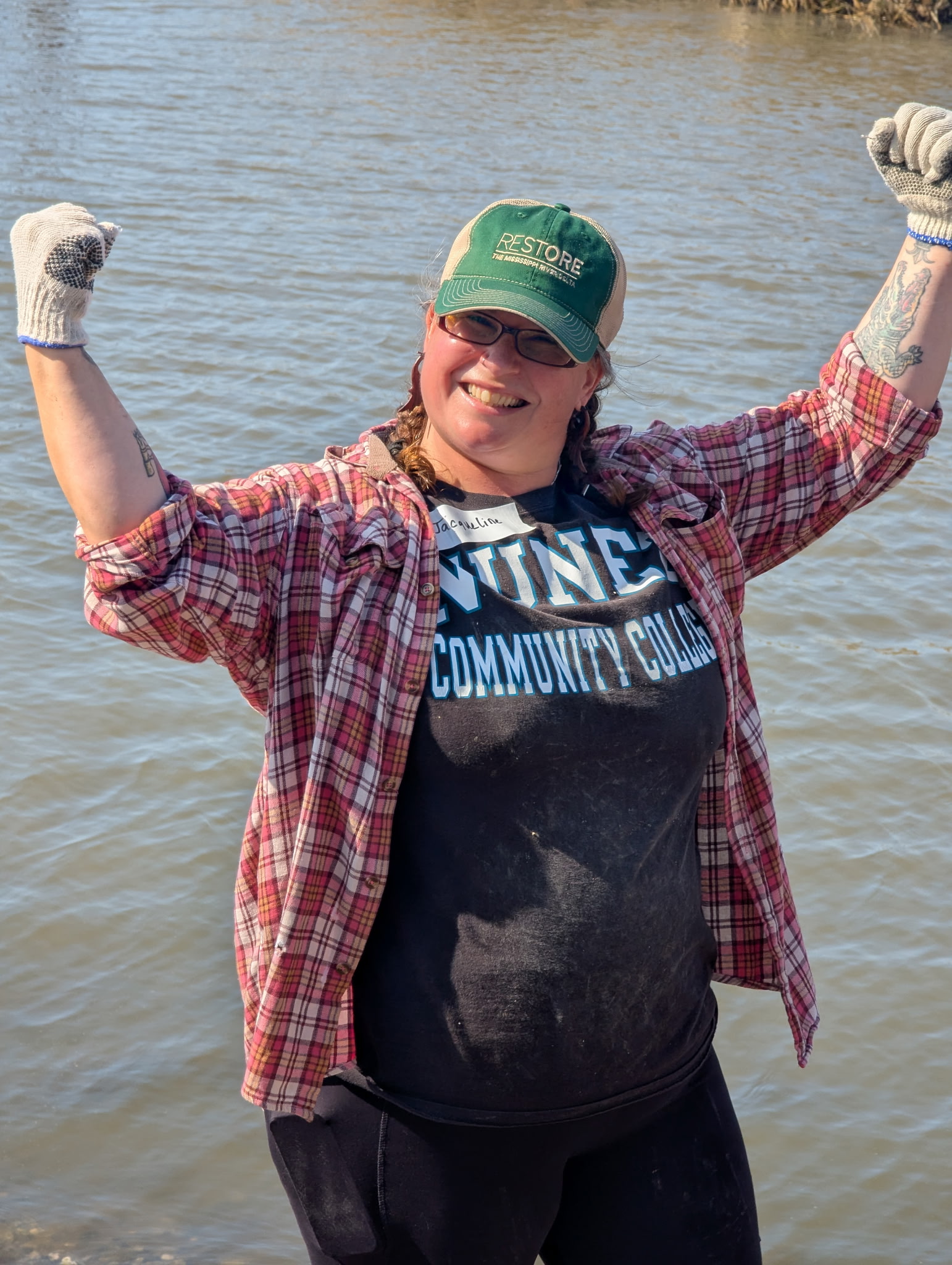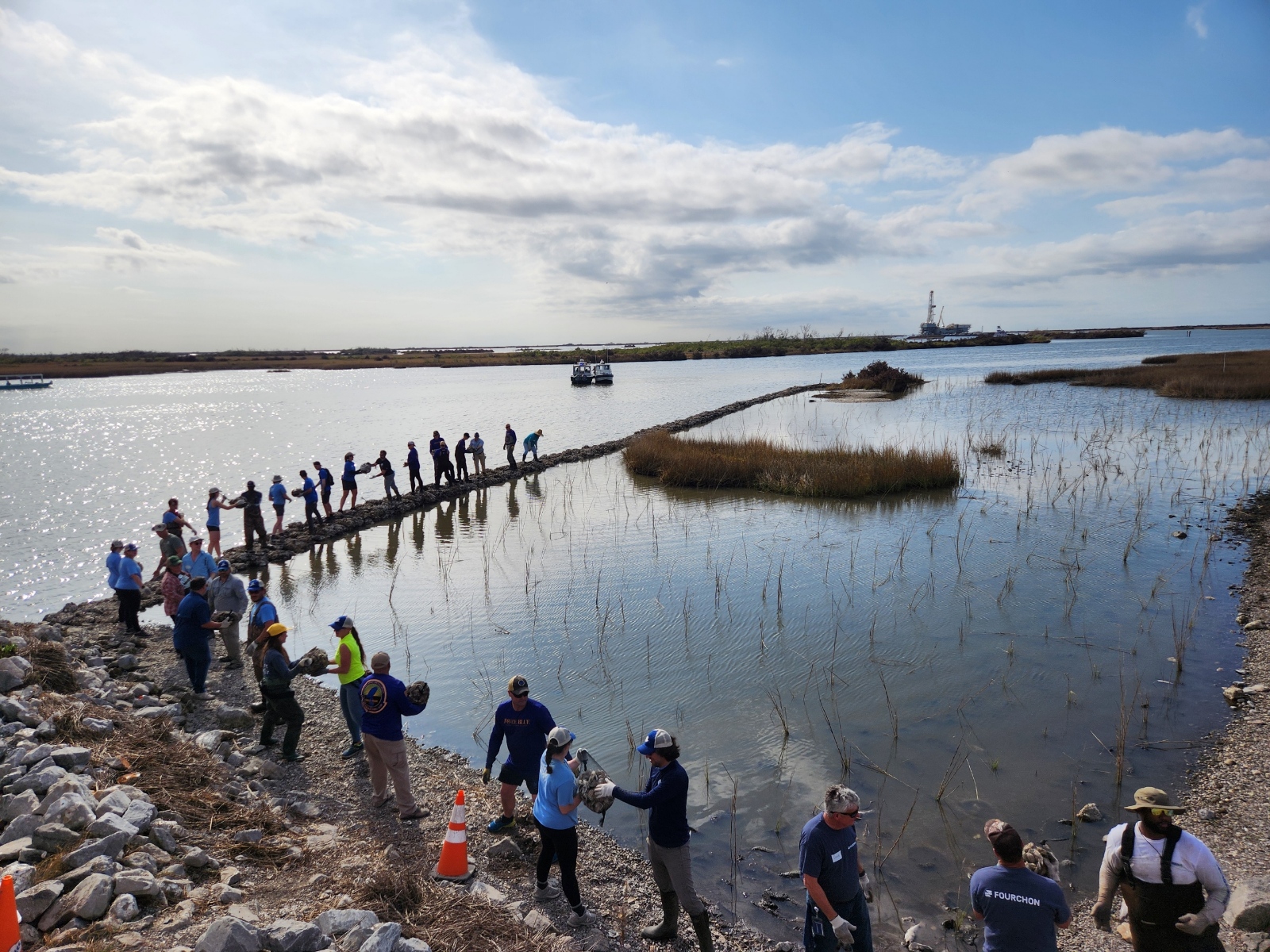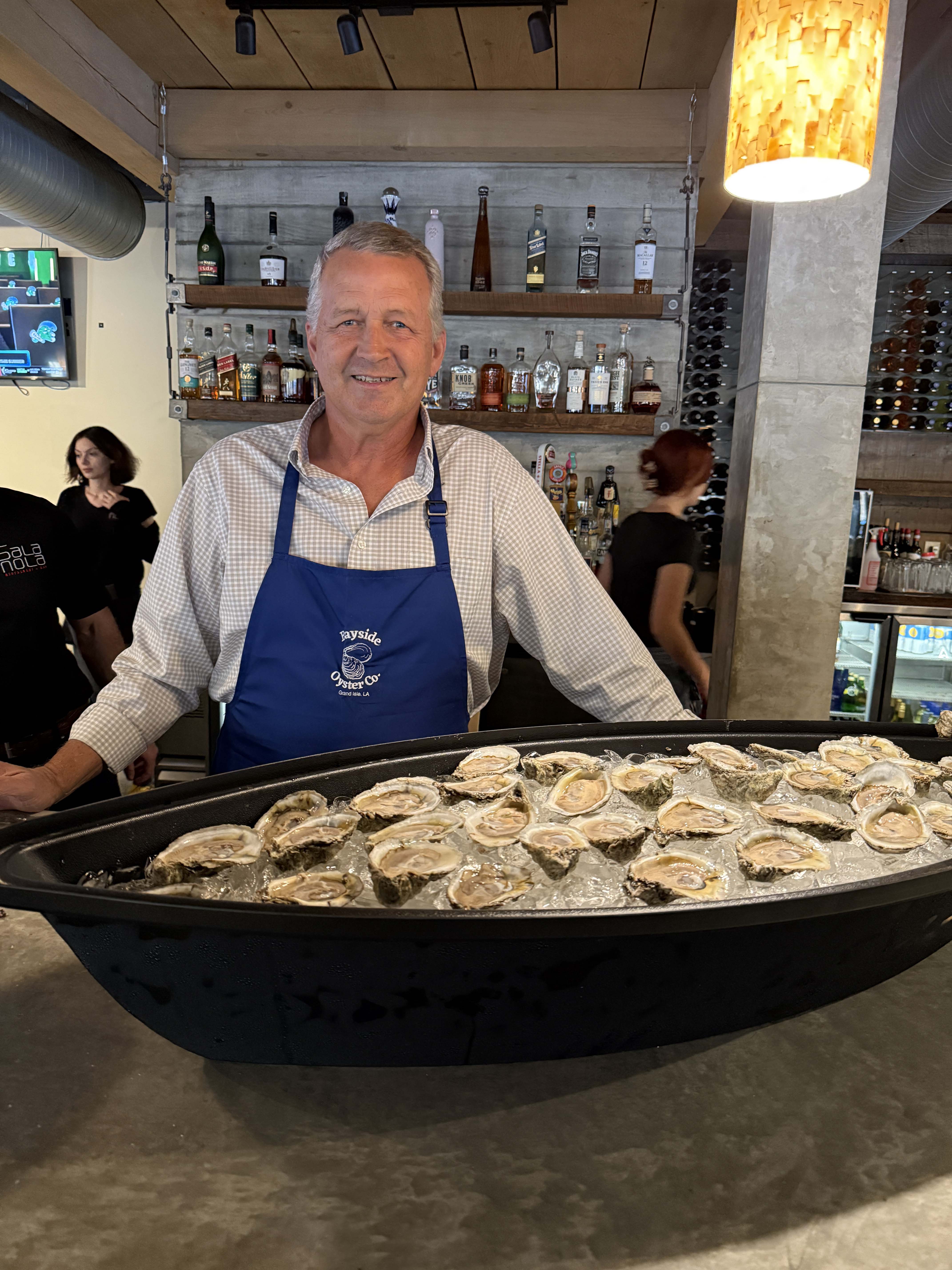
The latest
back to all articles
Partner Spotlight: Jacqueline Richard
Passion, curiosity, and calm aren’t traits typically found in one person—but in Jacqueline Richard, they coexist with ease. As the Director of the Coastal Studies & GIS Technologies at Nunez College, Richard engages her students in the classroom but also in the wetlands and other coastal areas, driving them to apply their knowledge and care about it.
“It creates an emotional investment,” says Richards, who has led numerous excursions into the field and on the water with Nunez students, volunteers, educators and others. “So if you're there, measuring trees, planting trees, measuring accretion or greenhouse gasses, now you're more aware of these issues just because you've done something to quantify that.”

This hands-on professor seems tireless in her mission to raise awareness about the Mississippi River, the coast, and the deltaic plain—and how these natural wonders face existential threats from coastal erosion. Richard partners with numerous organizations including Chefs Brigade (CB), Coalition to Restore Coastal Louisiana (CRCL), the Mississippi River Institute, and others. Besides leading the Nunez program, she teaches classes for the Master Naturalists of Louisiana, gives lectures for many organizations requesting geology / environmental talks, and she co-authored the CB’s Chefs on Boats curriculum.
“I really enjoy teaching people about this place. We live at the bottom of the largest river on the continent. It's amazing,” Richard says. “When the Chefs on Boats tours started happening, I was thinking about how do we teach chefs and culinary professionals all of these intricacies about the environment, but teach it in a way that's applicable to them? It's knowledge they're going to use, and maybe it's going to interest them enough to want to learn more. And so I got sucked in pretty easily.”
With that passion for the coast and so much coastal erosion occurring–a frequently cited data point is Louisiana loses a football field of land every 100 minutes–it’s surprising that Richard isn’t overwhelmed by it. Taking action and getting involved, however, is what she uses to dampen those difficult feelings and it’s something she’s done for nearly 20 years. Like so many watching Hurricane Katrina and levee failures unfold, Richard felt helpless, but she channeled that energy into making a major life decision to switch her career from paleontology to focusing on the coast.
With her many subsequent years of studying the coast, it has brought her a thoughtful approach to seeing the problem and what’s being done about it.
“We got here because there were a lot of people who wanted to extract natural resources, make money for their families, and generational wealth. That’s continuing to occur, and it's occurring at the cost of our coastline,” Richard says. “[At the same time] CPRA [Coastal Protection and Restoration Authority] has made Louisiana a leader in coastal restoration in the world, and I would love to see Louisiana continue that bright shining spot, which sometimes I don't feel like we have many.”
She also recognizes the major role education plays in it, making sure people realize that there isn’t one single cure for wetlands restoration because it is “living breathing space.” And doing a better job enforcing laws for backfilling canals, addressing abandoned wells, and backfilling borrow pits to manage the ongoing loss.
Richard points out that when it comes to repairing the coast and rebuilding land, there’s no better force than the river.
“It's carrying hundreds of millions of tons of sediment every single day. Each one of those grains of sentiment has the power to build land,” Richard says. “We’ve seen that with Neptune pass. We already have something along the lines of 3200 square acres of marsh that's going to be emergent. And in some areas, it's already emergent.”
Nature-based solutions like the recent Leeville project are something that excites Richard. As part of Super Bowl Week LIX, CRCL, Chefs Brigade, FORCE BLUE, NFL Green, Verizon, Entergy, and others teamed up to create a living shoreline using recycled oyster shells to rebuild an oyster reef at the public boat launch in Leeville, a Louisiana coastal community that has lost much of its land to coastal erosion. She says the rebuilt oyster reefs set up a protection barrier that slows down storm surge, hurricanes, tropical storms and powerful winds, and protects the land behind it.

Along with many other volunteers, Richard’s students chipped in by loading bags and then going out to the site to place the bags. She says the experience gave her students something beyond the typical college classroom, allowing them to see, touch, and feel what a difference their work could make.
“Knowing what you’re doing is going to help with the long term stability of that place is pretty amazing.”
It’s what she calls emotional investment, and, hopefully, it will help fuel future leaders like herself: passionate, ever curious to learn more about the coast, and calm despite the challenge ahead.
Richard’s work continues to be recognized and she has been honored with 2024 CRCL Coastal Stewardship Award, 2025 Coastal & Estuarine Research Foundation’s William A. Niering Outstanding Educator Award, and a CWPPRA (Coastal Wetlands Planning, Protection and Restoration Act) 2021 Wetlands Warrior to name a few.
more articles

December 17, 2025

November 12, 2025
.png)
October 16, 2025
.png)
September 10, 2025

August 2, 2022

August 2, 2022

August 2, 2022

August 2, 2022
